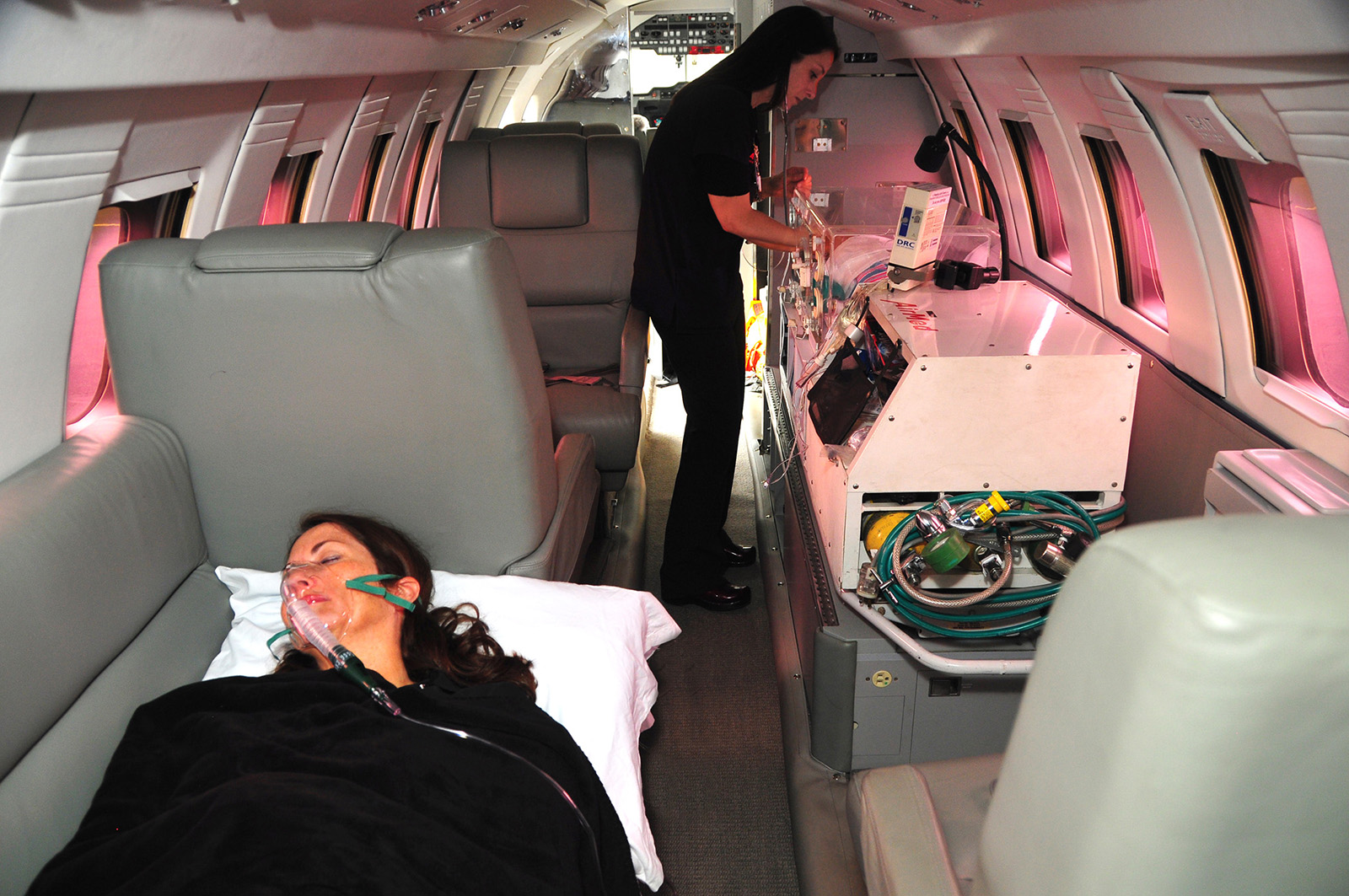Geriatric Patient Transport

With a growing population of geriatrics who actively partake in travelling, the pressing need for geriatric care can not be ignored. The population of Americans aged 65 and above is projected to more than double by 2060 to 98 million; this group’s share of the total population will rise from 15 percent as of today to 24 percent. While away from home, a geriatric person can fall sick or get injured, where the air medical crew may face a series challenges including alterations to their psychological or physical capabilities. This requires the medical crew to understand the particular needs of this age group to better facilitate and meet the needs, whereby mitigating the risks. Below mentioned are areas that need to be considered for effective medical evacuation of geriatric patients:
Comfort
Geriatric patients given the circumstances and the medical environment, may not feel safe or secure. This may escalate further where they may be suffering from dementia or Alzheimer's. Medical crew should therefore be capable to skillfully deal with cognitively dysfunctional geriatric patients. Having a travel companion could provide comfort to the patient. However, it is equally important to understand that the travel companion may too be frail, requiring special techniques to be utilized when boarding and keeping them at ease.
Oxygen needs
Geriatric patients may require higher levels of oxygen due to health conditions like respiratory insufficiencies, congestive heart failure and other chronic conditions. They may also be sensitive to changes in altitude, which is why availability of oxygen and expert administration to adjust levels is required.
Medication
Medicines to help lower stress and anxiety levels that may work for other age groups are metabolized differently in geriatric patients. Increased sensitivity to such medication may lead to medical conditions such as delirium, cognitive impairment, increased anxiety, itching and restlessness. Geriatric assessment is therefore required to avoid administering medication that may cause adverse reactions.
Skincare
During travel, geriatric patients are more prone to skin breakdown, requiring the medical crew to carry out geriatric assessment; whereby identifying areas of concern before the flight. Special efforts need to be employed like placing the geriatric patient on a padded stretcher, repositioning them and ensuring that they are comfortable.
Dehydration
The risk of dehydration during transport in geriatric patients also need to be considered. To ensure geriatric patients stay hydrated, they need to be given fluids by mouth and for the skin, lotions may be applied.
Geriatric Patient Transport Care by AirMed
At AirMed we understand the special needs of geriatric patients and take measures to effectively transport and provide geriatric care. From basic life support to critical care, our geriatric care medical crew can proficiently exhibit highest levels of care. Our teams are trained to ensure the comfort and safety of geriatric patients; where proper geriatric assessments are conducted before the flight and constant monitoring is observed during transport.
Certifications
Our medical teams also hold board certifications in CFRN (Certified Flight Registered Nurse) or CCRN (Critical Care Registered Nurse) We are proud to have this as one of AirMed’s standards to provide the highest clinical care.